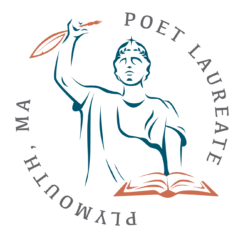“Nezval’s translators have done an excellent job of embodying in English the slippery act of cobbling together what can never entirely cohere—a self.” –Aditi Machado, Asymptote

About the book
Translated by Stephan Delbos
and Tereza Novická
The Absolute Gravedigger, published in 1937, is in many ways the culmination of Vítězslav Nezval’s work as an avant-garde poet, combining the Poetism of his earlier work and his turn to Surrealism in the 1930s with his political concerns in the years leading up to World War II. It is above all a collection of startling verbal and visual inventiveness. And while a number of salient political issues emerge from the surrealistic ommatidia, Nezval’s imagination here is completely free-wheeling and untethered to any specific locale, as he displays mastery of a variety of forms, from long-limbed imaginative free verse narratives to short, formally rhymed meditations in quatrains, to prose and even visual art (the volume includes six of his decalcomania images).
Reviews
The assertion that politics somehow degrades art is a false premise. This assumes political art is inherently derivative. What happens when it is done well? Nezval is a political poet like William Blake, subsuming his fury and despair into a wild cosmology.
— Karl Wolff, New York Journal of Books
Nezval’s grim and prescient view of politics is balanced by his belief in the creative power of the imagination and his insistence on the importance of exploring it.
— Marcela Sulak, Boston Review
The book is a multifarious beast, difficult to sum up briefly, and there will be something in it for anyone with an interest in poetry, the European avant-garde, Surrealism, history or politics. The timing of the translation’s publication could not have been more appropriate, given the ongoing resurgence of the far right in Europe and the USA; some of the material in the book, notably the long poem “The Iberian Fly”, written in response to Fascism, has a renewed resonance now.
— James Knight, Minor Literature[s]
The Absolute Gravedigger is, as Delbos notes in his afterword to the collection, a nod to Marx’s notion that the bourgeoisie are their own gravediggers. But it is also an apt title for a continent on the verge of total war – riven by increasingly entrenched domestic political struggles, xenophobic nativism, utopian (or totalitarian) internationalism, localised class struggle, and appeasement rather than compromise to the extent that, ultimately, the centre could not hold. Lessons of history. History of lessons.
— Benjamin Tallis, New Perspectives
First published in 1937, The Absolute Gravedigger is a masterfully lunatic work that showcases the powers of surrealism amidst a violently changing world. In his poems, all is manipulated, mutated and corrupted. Steeped in Salvador Dalí’s paranoic-critical method, Nezval’s works revel in a distrust of both form and state, fiendishly unveiling weaknesses in word and world. […] Not just a poet, but a portent. Nezval’s surreal palette wrestles with the grotesqueries of the world, pressing together fantasy and truth to create an unsettling tableau.
— Jeff Alford, New Orleans Review
It marks, so to speak, a transcendence of the earlier urban limitations of Surrealism. But what seems even more significant is that the collection puts a definitive end to Poetism’s programmatic joyfulness and optimism. Sinister atmospheres and dark, eerie images abound; metaphors are often nauseating and downright repelling.
The Absolute Gravedigger is an appealing little volume, with many striking pieces, with some context and useful background provided in the Afterword, where the translators also discuss some of their translation choices and approaches (as, unsurprisingly, some of this is hard to translated directly). It is also an impressively varied collection: while certainly of Nezval’s surrealist-period, this manifests itself in a variety of ways and approaches – welcome shifts of poetic strangeness from section to section.
Upon my first read-through of this newly translated collection of poetry by prominent Czech Surrealist, Vítěslav Nezval, I was struck by an eerie sense that the poet was speaking to the present moment. Published in 1937, the poems gathered in The Absolute Gravedigger form a gallery of darkening, disturbing, and frequently grotesque images that capture the mood of the shifting landscape of the years leading up to the Second World War.
There’s something of Bosch or Goya in the spare poems—somehow simultaneously bleak but vivid, morose but witty. The cityscapes, the entropy, the impressionistic details […] broken bits of civilization twitching into new combinations of reality.
In this, The Absolute Gravedigger is a valuable example of the avant-garde’s response to the tumult of the 1930s — but that is far from its only merit.
— Benjamin Cunningham, L.A. Review of Books
All of this seemingly abstract, matter-less matter turns into an ungainly body of odd parts that keeps connecting and breaking off and turning into other, still odder, parts.
— Aditi Machado, Asymptote
The Absolute Gravedigger represents the moment when the paranoiac-critical method first broke through to Czech poetry. And Nezval got so carried away by his initial excitement that he didn’t hesitate to draw the curtain over his entire oeuvre up till then, declaring that the first movement of his work was over. Yet The Absolute Gravedigger turned out to be both the beginning and the end of the promised second movement.
